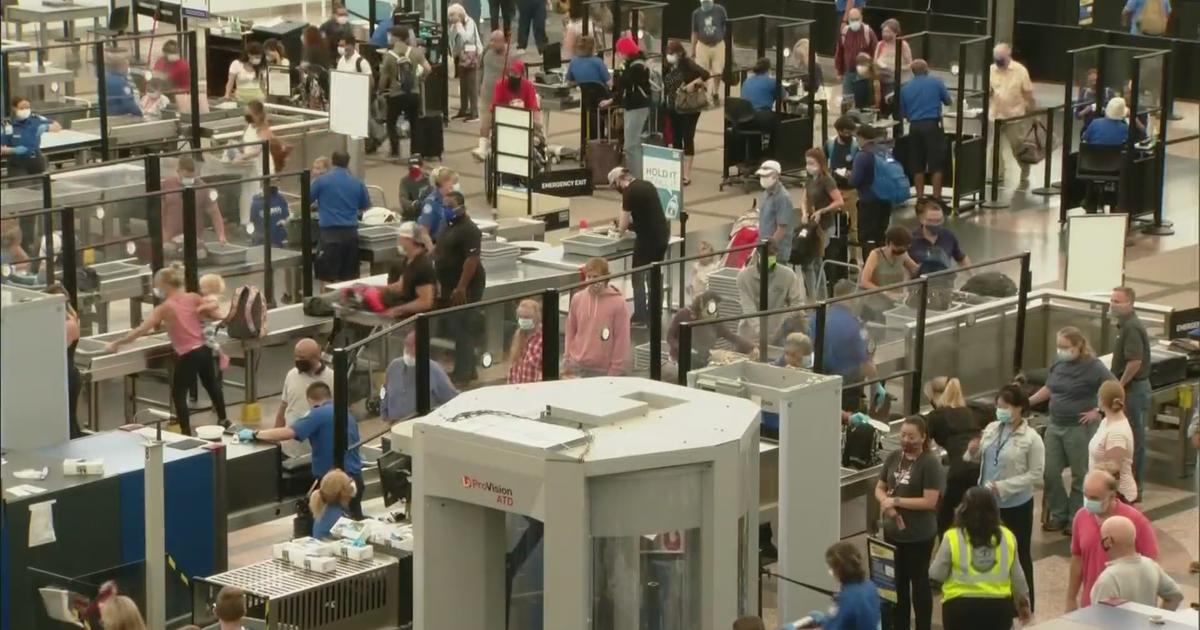Denver Taxpayers Paid Millions For Insurance For Non-Dependents
DENVER (CBS4)-An audit of employees who work for the city of Denver has revealed that taxpayers have been paying for medical, dental and vision benefits for approximately 1,000 people who, it turns out, were never eligible to receive Denver health benefits.
"They were signing people up for health coverage that were not qualified under the program," said Christopher Lujan, Interim Director of Denver's Career Service Authority. "The numbers show we have a certain amount who have been "free riders" and they don't qualify for health care coverage, thats's absolutely correct."
The dependent verification audit began last fall, conducted by ConSova, a company that specializes in these kinds of audits. Of 6,400 full time city employees, the majority has produced documentation like birth certificates, marriage licenses and tax forms to verify that their dependents are legitimate.
Lujan said 177 city employees voluntarily removed their dependents from health care coverage during the audit, another 200 did not respond to numerous requests for documentation and about 130 have submitted inadequate documentation. The dependents of those 507 employees, an estimated 1,000 people, have now been dropped from city health care coverage.
It's estimated that will save Denver about $1.5 million to $2 million per year in health care costs. Some city employees are appealing the terminations.
"So some of these employees put people on the health care plan who were not related to them at all?," Lujan was asked.
"That would be the conclusion, yes," said Lujan.
"We've been spending a couple million dollars a year on medical insurance for people not entitled to it?," Lujan was asked.
"That's correct," he said.
For decades, the city relied on the honor system, never asking for documentation verifying dependents. If an employee identified someone as their spouse or child, they got on the city medical plan, but no longer.
Dependent verification audits are becoming more and more popular with municipalities and large corporations. Removing ineligible dependents from health care plans can typically save as much as 4 to 6 percent of their annual health care costs.
Michael Smith, CEO of Consova, said eligibility audits typically find between 10 to 13 percent of current dependents listed on health plans to be ineligible.
These kinds of audits typically weed out ex-spouses, live-in partners and children who are too old for coverage. Lujan and other experts said some employees unknowingly placed ineligible dependents on their health care plan. But Lujan believes a percentage of employees were intentionally taking advantage of the system, deceiving the city and its taxpayers.
Brian Campbell, a city employee for the last 31 years told CBS4, "The ultimate goal is to weed out the cheaters."
Campbell said in all his years on the job, "The city has never verified this kind of information. It's overdue, I think its overdue."
While Campbell said he supports rooting out intentional or unintentional fraud, he takes issues with what he views as the heavy handed way Consova went about getting city workers to comply with the audit.
"I applaud the concept of what the city has attempted to do. The agency they've selected, Consova, I was insulted by their approach. They certainly hired an outfit that approached it as, 'none of you are to be trusted.'"
But Campbell said the goal is 'laudatory' and will save taxpayers money and reduce health insurance costs for city workers.
As the audit is winding down, Lujan notes that city workers were notified seven times since last September that they were obligated to turn in documentation or lose health care for their dependents.
While Lujan acknowledges some employees have likely been hoodwinking the system for years, costing taxpayers millions, the only repercussions they will face is loss of benefits for those they claimed as dependents. There will be no pursuit of criminal charges and no attempt to recoup the money the city spent on bogus dependents.
"There was a consensus reached that the penalty itself of having people removed from health care coverage, that in and of itself was enough," said Lujan.
He added in many cases, the city would likely spend more money trying to recoup money than it could possibly recover.




